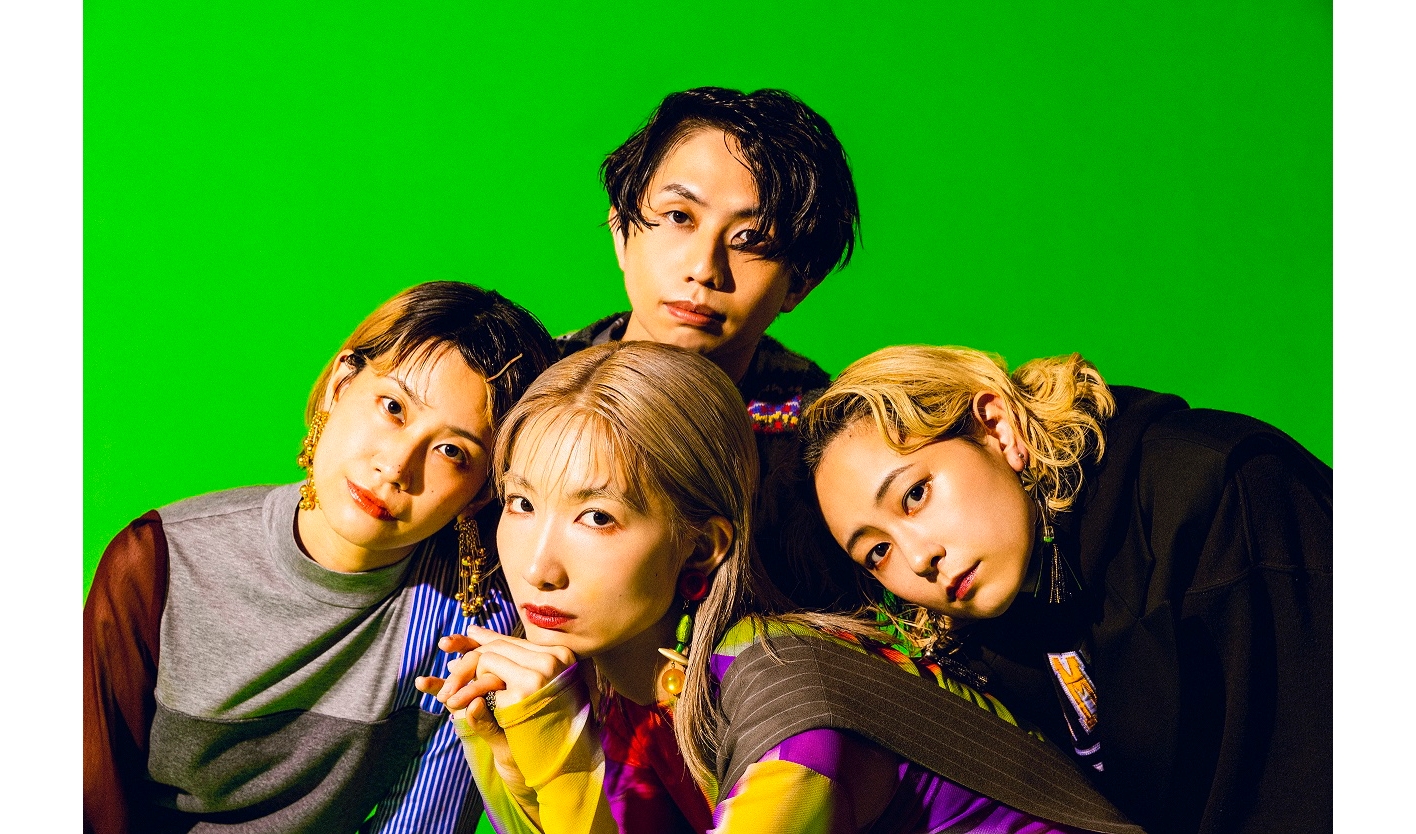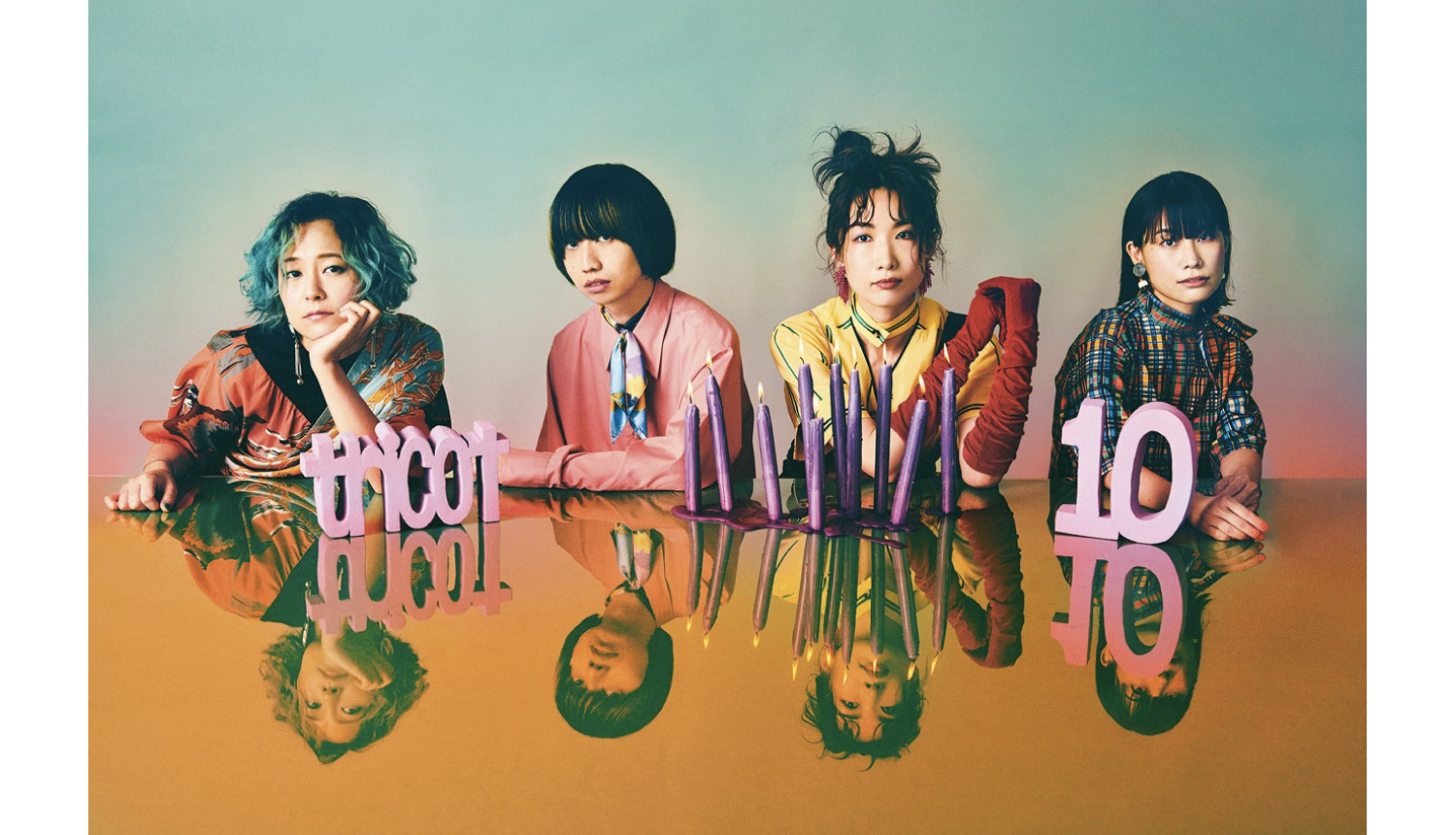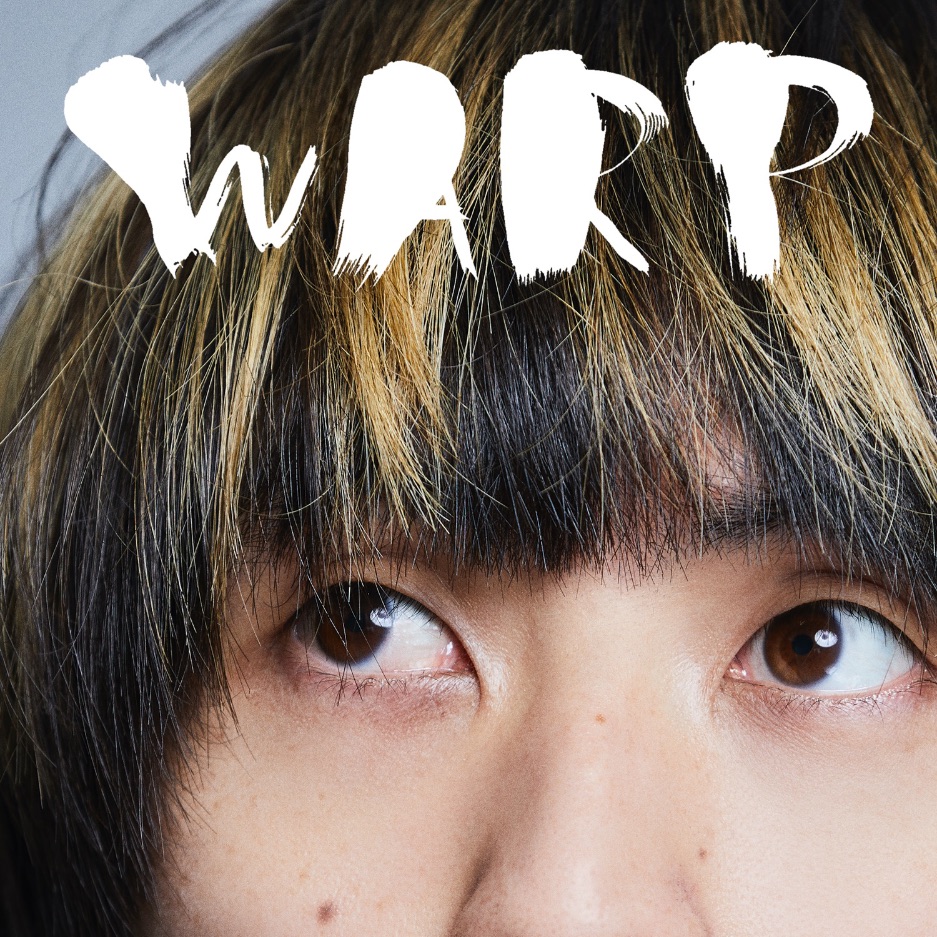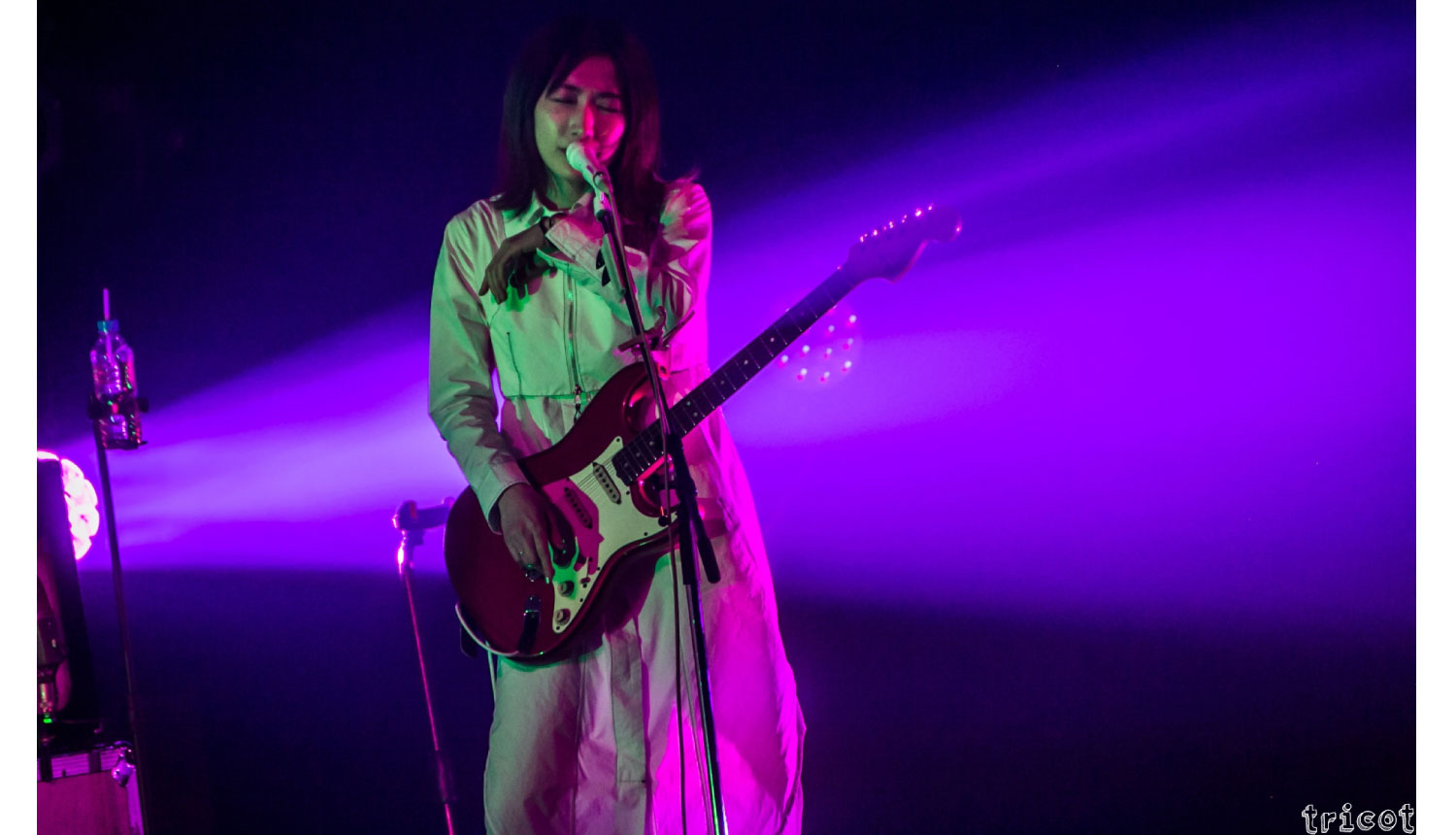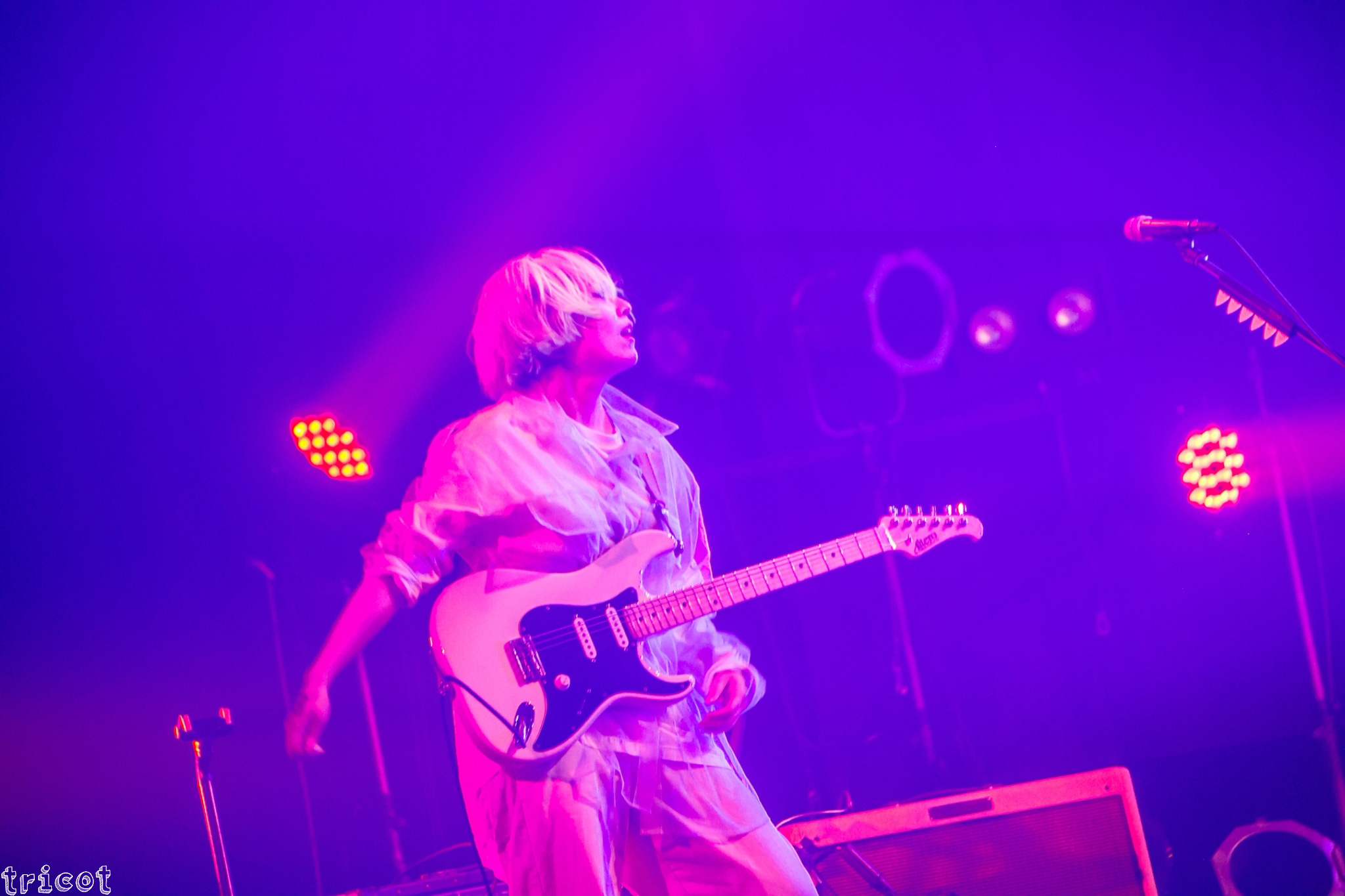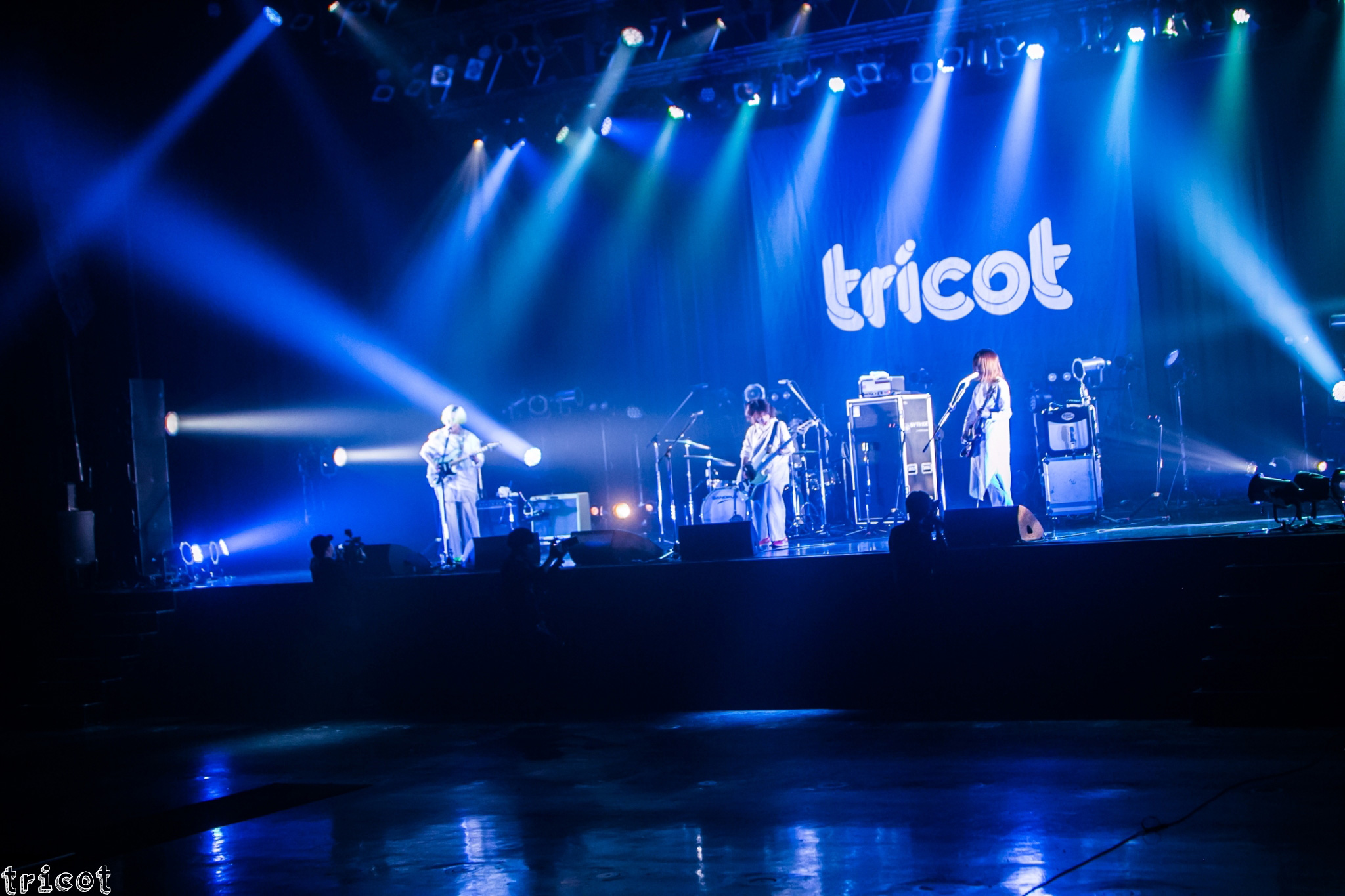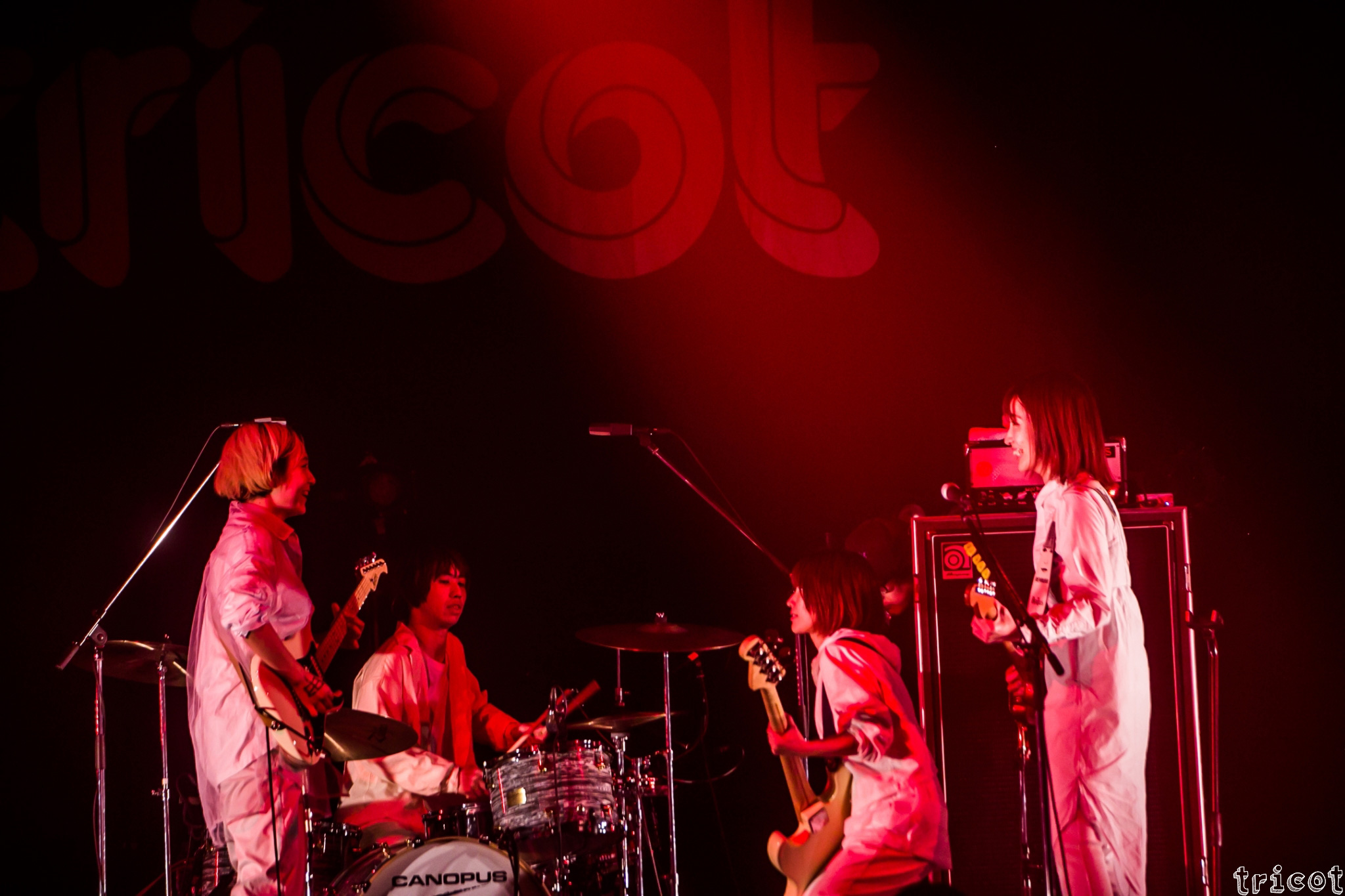The rock band of three members called “tricot” which has been creating complex and irregular beats’ music that utilizes each member’s session has been gaining popularity since in 2010. They had an interview with one of the British music magazine, NME, about their 2nd full album called “AND” in 2015, and also they were chosen as the opening performers for the music festival in Europe. Their peerless music style made them expand their activities even outside of Japan in recent years.
Their first live concert DVD called “KABUKU TOUR 2016 FINAL at AKASAKA BLITZ” contains their current band style attractiveness. This DVD includes their tour final in Tokyo for their newest single album in 2016 called “KABUKI EP (KABUKI originally means eccentric or unconventional.)” that they created with four different drummers that they chose in an audition. You can enjoy the new chemistries between these new drummers and tricot.
-The second album, AND, in 2015 contains some songs that you created with some other drummers. How did you guys start thinking about doing this?
Ikkyu Nakajima: Since the drummer, komaki♂, dropped out of our band in 2014, we had been having help from other drummers for about two years. We asked some drummers who we longed for to work with on “AND” in 2015. We just felt like that we are allowed to practice with higher skill musicians while we were making “AND”.
-And you guys created “KABUKI EP” in 2016 with four drummers that you guys chose in an audition. How did this make it change things compared with the time you created “AND”?
It was entirely antithetical experience that we could work with people who have really wanted to play the drum with us on “KABUKI EP.” They also made us think we need to work harder, and we could just make music with a pure motion. These four drummers made our performance more powerful, and made us feel like getting back to the spirit which we started the band.
-And you guys added new song named “Nichijo Seikatsu” without drum after finishing the four different songs with these drummers.
Nakajima: Right. When we finished making four songs with each of these drummers, I thought that each drummer threw their whole soul into their own songs.
I didn’t think it is going to be organized as a single album. Then I thought it is going to be interesting to make song by ourselves, the band of three members, without drum. Since we all basically like the chorus, I thought the song which makes good use of our chorus work help listeners to know the entire story of this album clearly.
-The fact that “Nichijo Seikatsu” which is the song without drum comes to the first song of this album helped me to know the characteristics of each of four drummers that took part in this album.
Nakajima: Yes, that’s right.
-And then you guys played that song, “Nichijo Seikatsu,”with five drummers on tour final that it contains in this DVD. How did you guys decide to do this?
Kida Motifo: We are thinking about having another drummer through the tour of “KABUKI EP” from the beginning. That’s why we might as well play a song with these five drummers on tour final.
Nakajima: I don’t even remember who start saying this. When we were deciding set lists for the concert, we started talking about the song called “Niwa” (this is a song which they play before the “Nichijo Seikatsu” at the concert.) to play all together at first. And we ended up playing the “Nichijo Seikatsu” with five drummers somehow. First time we played all together, it was just the nosiest thing I have ever heard. The supporter, Miyoko Yamaguchi, helped us to organize, and then finally we settled.
-I think that tricot have been thinking about what they are going to do about drum for recent few years. Did you guys find another way through this project?
Nakajima: In our case, we didn’t think about “what are we supposed to do without drum?” after the previous drummer’s withdrawal to begin with. We were feeling like “we can do something different since the drummer is gone.” That allowed us to have chance to play music with many different people. However, it was really difficult to create music without drum since we are most likely to create the songs through the jam sessions.
-You have challenged music programming, right?
Nakajima: That’s right. It was really fun, and we learned a lot through this, but we decided to go back to our basic this time. We start to look for the drummer who is going to play with us, and then one of the members, Hiromi, suggested having an audition.
Hiromi: I felt like that our situation has not changed any since the drummer left, so I thought we should have a try out. And then we couldn’t decide the only one person. However, I thought playing with all people who we thought that they are great is the thing what only tricot could do.
Nakajima: It was not like that we progressed step by step. These drummers gave us a push. If we were doing band with same members in whole time, it makes it hard for us to be momentum. They made us to remember the spirit that we started with.
-Tricot has had several live concerts outside the country. How did this experience give influence to current band style?
Nakajima: We could find some great parts about Japan objectively, since we could get to know the other countries as comparisons. This gave us an opportunity to be interested in Japanese traditional art such as Kabuki, and then we created “KABUKI EP” as a consequence. When we come back to Japan from the other countries, we just felt like that we became a foreigner.
Kida: I know there are so many different people even only in Japan for sure, but there are so many more different things such as people and environment between Japan and abroad. It simply broaden my horizon by having new experiences, for example, to meet someone who is vegan or very religious since we don’t have chance to see those type of people at all if we are only staying in Japan.
Hiromi: there are so many differences compared to Japan such as cultures and people. My perspectives have changed a lot since then. I concerned about little bitty things. Conversely, people in other countries are more likely to be sketchy. I like how they are enjoying their own life not worrying too much about others. I have started wanting to be like them.
-I’m sure you guys feel difference for doing live concert between in Japan and in other countries.
Kida: The audiences in other countries are not caring about other people’s opinion. They are more like “I like it whatever other people say.”
Nakajima: When we do a concert in other countries, there are some audiences who get lively from the beginning even though there are so many other audiences that they don’t know about us. I felt it is different.
-Tell me if there’s place that you guys want to have a concert include other countries.
Nakajima: I got so many comments says “Indonesia, please!” so I want to go there sometime soon. Other than that, I want to go to Hokkaido, because their foods are tasty.
Kida: I want to go to the countries in Southern Hemisphere. I want to dance the samba crossing the equator.
Hiromi: I want to go Brazil and India. I want to eat Indian curry. That’s the main thing what I want to do!
-Tricot has a freedom atmosphere. I think most people don’t come up with an idea to make EP with four different drummers that you chose in an audition.
Hiromi: It is thankfully because we are doing music work in own label company, and we have good teamwork with four people include manager who understand well what we really want to do. He might be half tiring of what we do, but he also think it’s interesting about us. That’s why we want to do something what we can think it is interesting. Going to the other countries gave big impact on us. I think we started doing whatever we want to do after we figured out things clearly.
-What do you guys want to do the next?
Nakajima: I want to everything what I thought of it’s interesting which is not restricted by not only a music time, but also the generations, genre, musical instruments, countries, ages and gender. I just want to play rest of my life.
Kida: there’s nothing special what I want to do now, but I want to keep being said “this band does whatever they like.”
Hiromi: I don’t have anything that I want to do specific either, but I want to keep doing my work valued the feelings at a moment when I thought that “I want to do this next.”
———
This band, tricot, has pursuit possibility of their styles putting an importance on the feeling that “they want to experience something fun and new.” Their music has mysterious addictiveness that you can find new interpretation every time you listened to it.
—
■Related article:Interview The new songs of “Sugar’s Campaign” by Avec and Seiho who are Gaining Popularity Around the World.
■Related article:Interview What kind of music artist is Seiko Omori trying to be?


